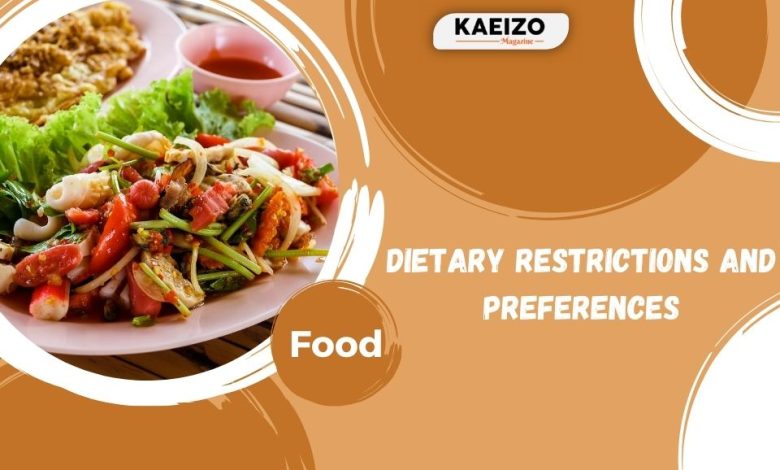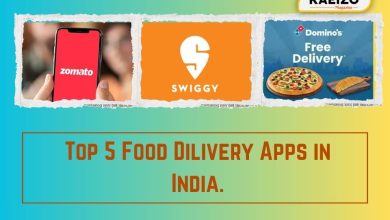
here’s a detailed look at dietary restrictions and preferences:
1. Vegetarian Diet
- Description: A diet that excludes meat, fish, and poultry.
- Types:
- Lacto-vegetarian: Includes dairy products but not eggs.
- Ovo-vegetarian: Includes eggs but not dairy products.
- Lacto-ovo vegetarian: Includes both dairy products and eggs.
- Benefits: Often lower in saturated fats and cholesterol, high in fiber, and rich in vitamins and minerals.
- Challenges: Ensuring sufficient protein intake and certain nutrients like iron, vitamin B12, and omega-3 fatty acids.
2. Vegan Diet
- Description: A diet that excludes all animal products, including meat, dairy, eggs, and honey.
- Benefits: Can be high in fiber, vitamins, and antioxidants; linked to lower risk of heart disease, high blood pressure, type 2 diabetes, and certain cancers.
- Challenges: Risk of deficiencies in vitamin B12, iron, calcium, vitamin D, and omega-3 fatty acids. Requires careful meal planning to meet nutritional needs.
3. Gluten-Free Diet
- Description: A diet that excludes gluten, a protein found in wheat, barley, rye, and their derivatives.
- Who Needs It: Essential for individuals with celiac disease or gluten sensitivity.
- Benefits: Reduces symptoms like bloating, diarrhea, and abdominal pain in those with gluten intolerance.
- Challenges: Gluten is in many processed foods, making it necessary to read labels carefully. Ensuring a balanced diet can be tricky.
4. Ketogenic (Keto) Diet
- Description: A high-fat, low-carbohydrate diet that induces ketosis, a metabolic state where the body burns fat for fuel.
- Benefits: Can promote weight loss, improve insulin sensitivity, and reduce seizures in epilepsy patients.
- Challenges: May cause nutrient deficiencies, increased risk of heart disease due to high saturated fat intake, and side effects like the “keto flu.”
5. Paleo Diet
- Description: Focuses on foods presumed to be available to Paleolithic humans, including lean meats, fish, fruits, vegetables, nuts, and seeds, while excluding processed foods, grains, legumes, and dairy.
- Benefits: Emphasizes whole foods, which can lead to improved health markers and weight loss.
- Challenges: Can be restrictive and may lead to nutrient deficiencies, especially in calcium and vitamin D.
6. Mediterranean Diet
- Description: Inspired by the traditional eating patterns of countries bordering the Mediterranean Sea, it includes fruits, vegetables, whole grains, nuts, seeds, olive oil, fish, and moderate amounts of dairy and wine.
- Benefits: Associated with reduced risk of heart disease, stroke, and certain cancers; promotes longevity.
- Challenges: Can be higher in fats, although mostly healthy fats; requires access to fresh produce and seafood.
7. Low-FODMAP Diet
- Description: Designed to reduce symptoms of irritable bowel syndrome (IBS) by limiting fermentable oligosaccharides, disaccharides, monosaccharides, and polyols.
- Benefits: Can significantly alleviate IBS symptoms like bloating, gas, and abdominal pain.
- Challenges: Complex to follow and requires guidance from a dietitian; potential for nutrient deficiencies if not properly managed.
8. Intermittent Fasting
- Description: Alternates periods of eating with periods of fasting. Common methods include the 16/8 method (16 hours fasting, 8 hours eating) and the 5:2 method (normal eating 5 days, restricted calories 2 days).
- Benefits: Can aid in weight loss, improve metabolic health, and promote longevity.
- Challenges: Can be difficult to adhere to, may cause overeating during eating periods, and isn’t suitable for everyone, especially those with certain medical conditions.
9. Food Allergies and Intolerances
- Common Allergens: Peanuts, tree nuts, milk, eggs, wheat, soy, fish, and shellfish.
- Symptoms: Can range from mild (rashes, itching) to severe (anaphylaxis).
- Management: Strict avoidance of allergens, careful reading of food labels, and carrying emergency medication like epinephrine auto-injectors for severe allergies.
10. Religious and Cultural Diets
- Examples:
- Kosher: Jewish dietary laws including the exclusion of pork and shellfish, and the separation of meat and dairy.
- Halal: Islamic dietary laws including the exclusion of pork and alcohol, and specific methods of animal slaughter.
- Rastafarian: Often vegetarian or vegan, avoiding alcohol, processed foods, and sometimes even salt.




